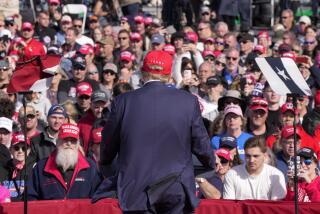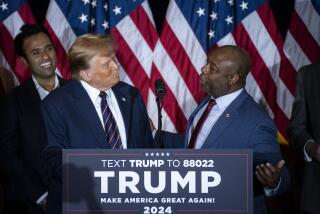Devin Nunes is attacking his district’s newspaper before the midterm election. It’s a page from Trump’s playbook
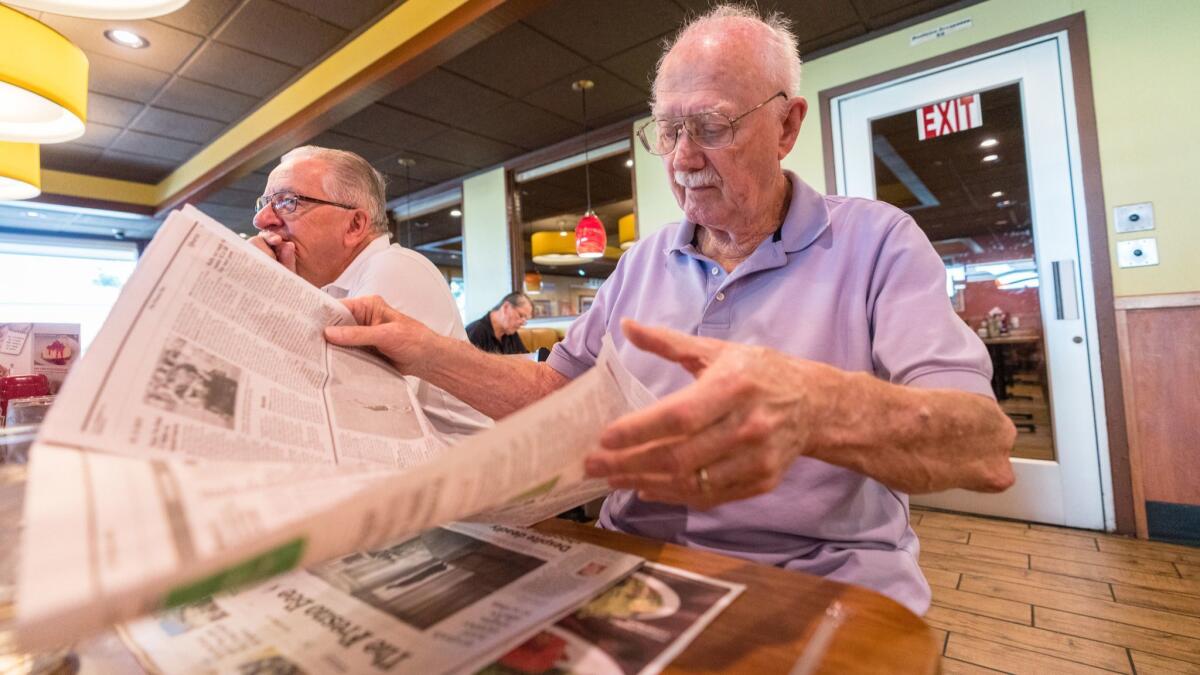
For years, Rep. Devin Nunes and the Fresno Bee got along just fine. But now, facing his first serious election challenge in years, the Central Valley congressman is on the attack — not against his Democratic opponent, but his district’s largest newspaper and what he calls its “band of creeping correspondents.”
The Republican from Tulare is bashing the Fresno Bee in TV and radio ads and a glossy, 40-page mailer after the newspaper angered him with harsh editorials and less-than-flattering news stories. In one ad, he looks into a camera and accuses the paper — which had endorsed him in the last eight elections — of “working with radical left-wing groups to promote fake news stories.”
It’s a tactic that Nunes — along with other Republican candidates — has borrowed from President Trump when encountering coverage he doesn’t like.
The approach could test whether Trump’s strategy of lashing out at the media will work on a local level to draw a conservative base to the polls. Like Trump, Nunes limits his appearances to partisan shows. He also uses podcasts and a staff-curated news website to circumnavigate traditional media. Conservative talk radio has only magnified his attacks on the Bee.
There is no downside for Republicans who attack the news media, said UCLA communications professor Tim Groeling. “The criticism makes any criticism of them that appears in the press less damaging, and any praise they receive is amplified.”
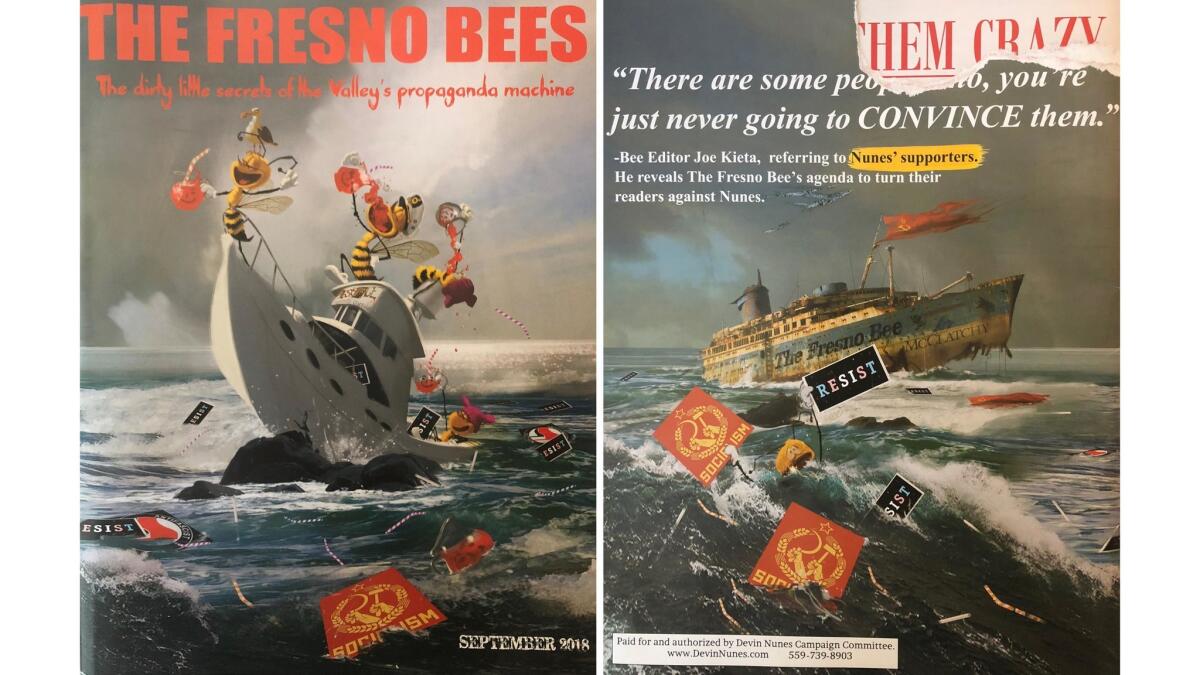
Once nearly an untouchable political figure in the 22nd Congressional District, Nunes, 45, is under scrutiny on several fronts: his actions to protect Trump from the Russia investigation, his family’s out-of-state dairy farm and what some call his lack of responsiveness to constituents.
Facing Fresno County prosecutor Andrew Janz, 34, a first-time candidate with little record to exploit, Nunes, chairman of the House Intelligence Committee, has made the media his main political adversary.
“Having a new enemy, a close-to-home enemy — oh, it’s so helpful,” said Renee Hobbs, a communications professor at the University of Rhode Island. “If the local news media can be aligned with the ‘fake news’ phenomenon, then it becomes a super easy target to create that us-versus-them mentality and bring out voters.”
To win reelection, observers say, Nunes only needs his most ardent supporters to turn out. In a district that spans the more conservative parts of Fresno and Tulare counties, Republicans outnumber Democrats by a 10-point margin, and Trump won here by 9 percentage points.
It’s concerning to me, but I think, in the long run, the truth is the ultimate authority here.
— Joe Kieta, Fresno Bee editor
Nunes in February started testing a partisan news aggregation site, the California Republican, paid for by his campaign committee.
On his first podcast episode this summer, before diving into criticism of the state’s gas tax and plan for high-speed rail, Nunes opened with shots at traditional media. Denouncing all major media outlets as working with Democrats and promoting socialist policies, he said, “This is our way to get past that, to move past that and to take a conservative message about good governance, transparent government straight to the people.”
In a recent email blast, he accused reporters of “stalking” his relatives; the email followed an Esquire magazine article about his family’s dairy farm operation, which the article says was moved out of California to Iowa years ago and may employ immigrants in the country illegally. (The reporter also described being tailed in Iowa by Nunes’ relatives.)
Calls and emails to the Nunes campaign for an interview were not returned.
The campaign’s latest, most elaborate volley came in the mail: a magazine-style booklet devoted largely to undermining the Bee. The cover, in the style of a political cartoon, shows bees drunk on Kool-Aid on a boat, with “resistance” and “socialism” placards littered across turbulent waters.
“The dirty little secrets of the Valley’s propaganda machine,” the title reads. Testimonials from local business leaders and residents denigrate the Bee, and articles without named authors accuse the paper of coordinating with protesters and Janz, the Democratic challenger. The mailer devotes fewer pages to Janz, and even those criticize the Bee; it claims he riled up protesters at Nunes’ Clovis office, trespassed when filming an ad, and was supported by Hollywood celebrities.
Janz denied he trespassed or coordinated any protests. He defended the Bee: “Everyone who grew up here knows it has been a conservative paper. So, it is very confusing for me and others in the Central Valley for Nunes to refer to it as a liberal rag.”
On the back of the mailer, a rusted ship named “The Fresno Bee McClatchy” sinks as its tattered Soviet flag flutters and a bee is pulled under the waves.
Lisa Bryant, assistant political science professor at Cal State Fresno, said she was surprised when she received the campaign booklet, thinking at first it was a catalog; she had to flip through a few times to realize it came from her congressman. “There was a lot of work that went into this,” she said. “This is a well-thought out piece of material.”
Bee editor Joe Kieta said he stands by his paper’s reporting and denounced the mailer as “filled with inaccuracies and lies on our reporting.” He said the Nunes campaign has not returned the paper’s calls since spring.
“It’s just a way to cast doubt in people’s minds about the good work that we do here,” Kieta said of the allegations. “It’s concerning to me, but I think, in the long run, the truth is the ultimate authority here.”
On Saturday, the newspaper endorsed Janz.
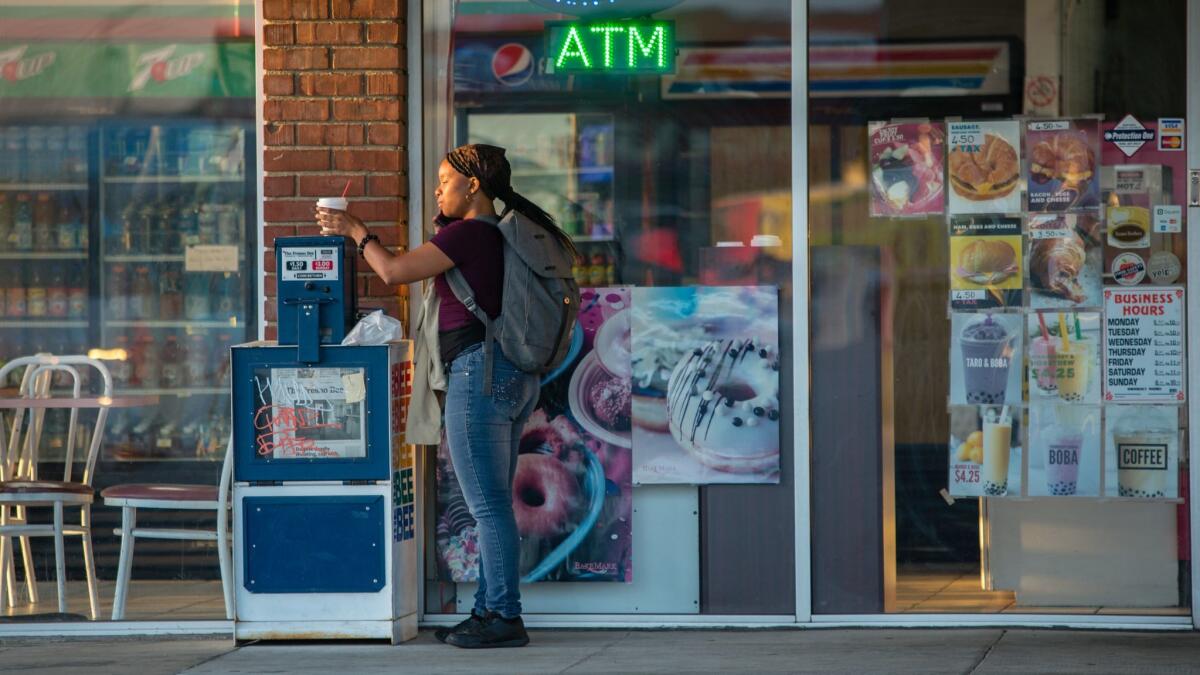
Nunes’ animosity toward the Bee is relatively new.
A piece written by the paper’s editorial board, which is separate from its news section, called the president’s former transition advisor “Trump’s stooge,” saying he wasn’t representing constituents but “doing dirty work for House Republican leaders trying to protect President Donald Trump in the Russia investigation.”
A Bee opinion column criticized Nunes for conjuring conspiracy theories and failing to help the region through the drought.
The feud escalated when the Bee reported about a lawsuit filed against Alpha Omega Winery, in which Nunes has a stake. An employee alleged the business asked her to serve guests on a charity cruise who, the lawsuit said, appeared to be using drugs and employing sex workers.
Nunes accused the paper of “slander” and said the yacht was misused by a buyer of an auction item. The cover of his campaign booklet, with the drunken bees on a yacht, is a knock on the story.
“Someone wrote the Bee and called the story ‘yellow journalism’ — they were being polite,” Michael Der Manouel Jr., a Fresno businessman and former state GOP party official, said in the mailer. Der Manouel, known for his flaming commentary on talk radio, said in an interview that he unsubscribed this spring after three decades partly because of what he saw as unfair treatment of Nunes.
Nunes is battling an already weakened target. For years, regional newspapers and television stations have grappled with diminishing budgets, staff cuts and dwindling public trust. McClatchy Co., which founded the Fresno Bee in 1922, has seen rounds of cuts at its 10 newspapers in the West.
The 22nd District, home to 734,500 people in the eastern San Joaquin Valley, reflects the media landscape in much of rural America. It can be hard to find a print copy of the local paper. Many retirees say they turn to Fox News, and a conservative-leaning Sinclair-owned TV station in Fresno is reportedly pushing away from local news to partisan reporting on national politics.
Even though Republicans trust their local newspapers far more than the overall news media, according to a 2017 survey by the Poynter journalism institute, nearly 4 in 10 in the GOP don’t have confidence in them.
That trust could erode further, experts say, in a time when readers and viewers aren’t connecting with their local media outlets; people who aren’t politically engaged tend to obtain their information online and to blur their sources, while those with extreme partisan views seek only those that affirm their beliefs.
“Telling you what you don’t know is where the news is most valuable, but it is also where consumers are the most vulnerable,” said UCLA’s Groeling. “There are a lot of people identifying themselves as news providers, without people having the ability to verify the information for themselves.”
Twitter: @jazmineulloa
Twitter: @jazmineulloa
More to Read
Get the L.A. Times Politics newsletter
Deeply reported insights into legislation, politics and policy from Sacramento, Washington and beyond. In your inbox three times per week.
You may occasionally receive promotional content from the Los Angeles Times.
